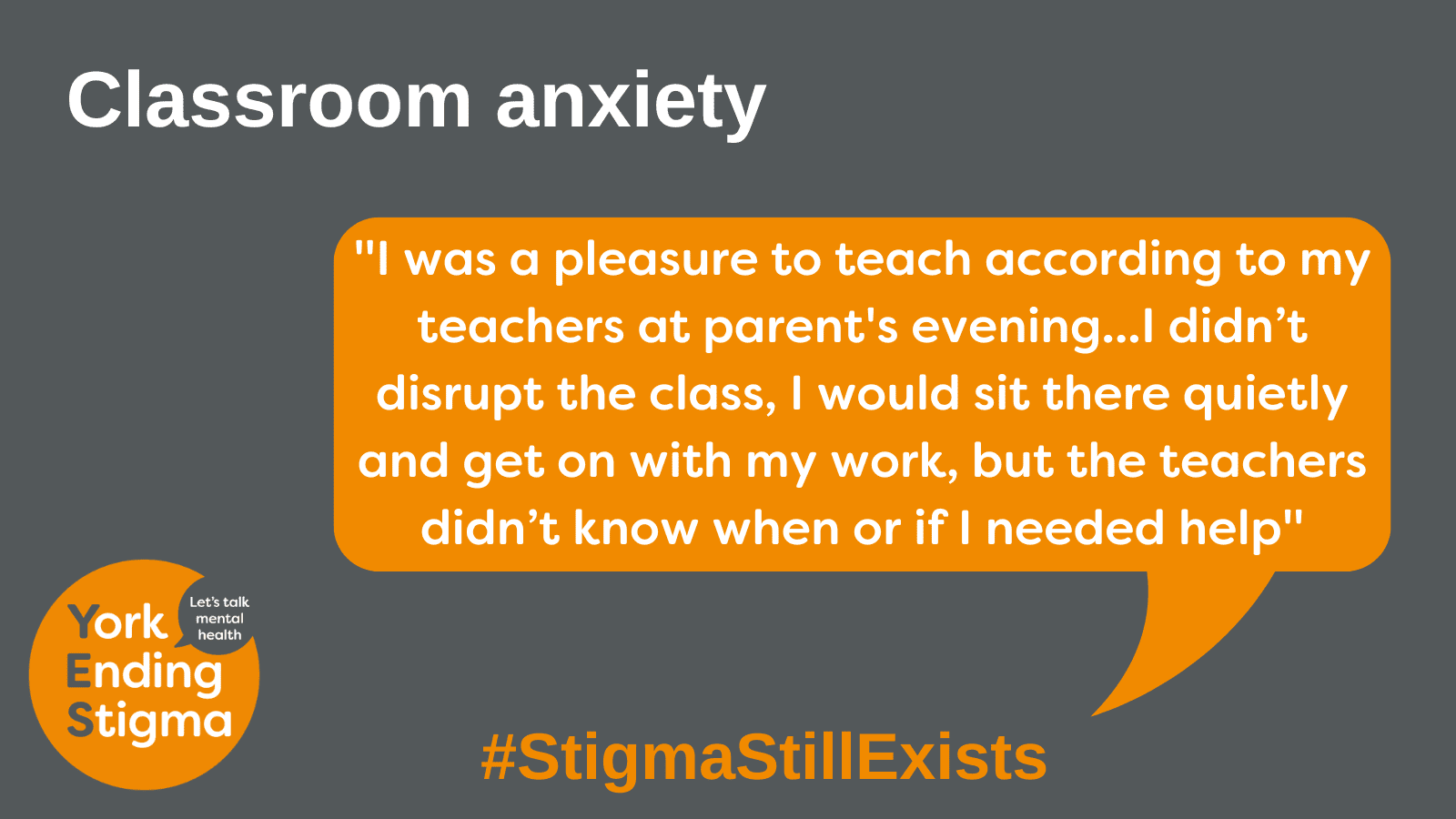
I was a pleasure to teach according to my teachers at parent’s evening. Some variation of that was said each year of secondary school to my parents, but with the same additional comment too. I was a pleasure to teach as I didn’t disrupt the class, I would sit there quietly and get on with my work, but the teachers didn’t know when or if I needed help, as I never put my hand up.
“The attention shifting onto me left my face burning, heart
beating loudly in my ears and my voice shaking.”
I never put my hand up in class unless it was absolutely necessary, for a specific reason. The attention shifting onto me left my face burning, heart beating loudly in my ears and my voice shaking. It wasn’t always when I put my hand up to be called on in class that I would feel this internal panic either. The wait to say ‘yes’ when my name was called for the register sent me on edge, afraid my voice would fail or I would croak and embarrass myself. It also happened when a teacher had no volunteers, and I would do anything to avoid eye contact and being called on. I would rehearse an answer in my head over and over, terrified I would be called upon and have nothing to say, or what I said would be incorrect.
“Even when I needed help, I did not want to ask in the middle
of class and have everyone’s attention on me…”
Even when I knew the answer to a question, I was not comfortable putting my hand up and contributing to the class. Even when I needed help, I did not want to ask in the middle of class and have everyone’s attention on me, instead I would stay after class and ask for advice in a less crowded setting.
It felt like other students didn’t understand my avoidance of talking in front of a class of thirty-something students, and that didn’t help how uncomfortable talking made me. I remember in one class specifically, one of the more confident students decided to talk over me, and when the teacher told the student to be quiet because the teacher was talking to me, the student yelled, asking if our teacher had ever heard me speak, as I never did.
“Nobody saw how anxious I was, and I had no idea what I felt
wasn’t something everyone else felt.”
It would take a lot of mental energy to work myself up to talk in a class, the teachers not realising how nervous talking made me, instead seeing me as an undisruptive student, and my classmates did not recognise my quietness as anything but abnormal. Nobody saw how anxious I was, and I had no idea what I felt wasn’t something everyone else felt. Other people’s hearts didn’t race until they could hear their heartbeat in their ears when they were asked a question in class, or struggled to breathe, rehearsing an answer in their head over and over when the teacher was looking for someone to answer their question. Other people didn’t see, or feel the anxiety I felt, I was just the quiet student who got on with their work, and nobody thought otherwise.
“Other people’s hearts didn’t race until they could hear their
heartbeat in their ears…”
Looking back on secondary school, it stands out to me that nobody knew how I felt. Instead, my quietness was a blessing to the teachers who wanted to teach in peace, and something abnormal in the eyes of my more confident classmates. By talking honestly about our thoughts and feelings, we can tackle the assumptions and stigmas that are associated with them. An example of this is the assumption made by one of the students in my classes that I never spoke, when in reality, I was terrified of talking in front of a classroom of thirty people. I hope that by talking about my thoughts and feelings about my anxiety in the classroom during secondary school, it helps someone else who may be experiencing something similar to what I did and encourages them to talk about their thoughts and feelings too.
Anxiety resources for England
• Anxiety UK www.anxietyuk.org.uk
• Mind www.mind.org.uk
• NHS https:/www.nhs.uk/every-mind-matters/mental-health-issues/anxiety/
York Ending Stigma
To find out more about our work and to join us to end mental health stigma in York, please refer to our website https://yorkcvs.org.uk/york-ending-stigma/ or email us on yes@yorkCVS.org.uk
